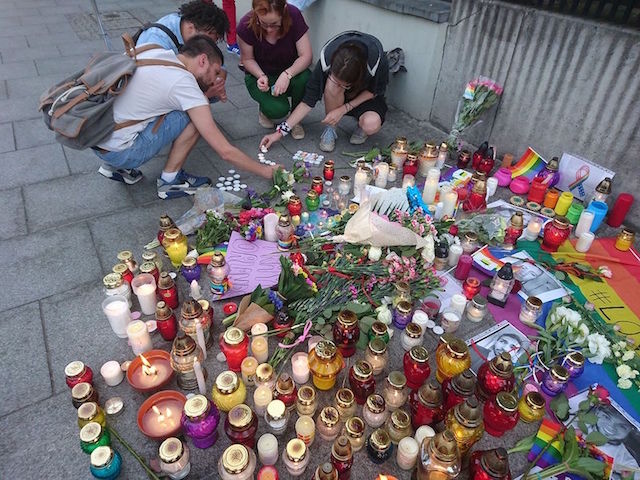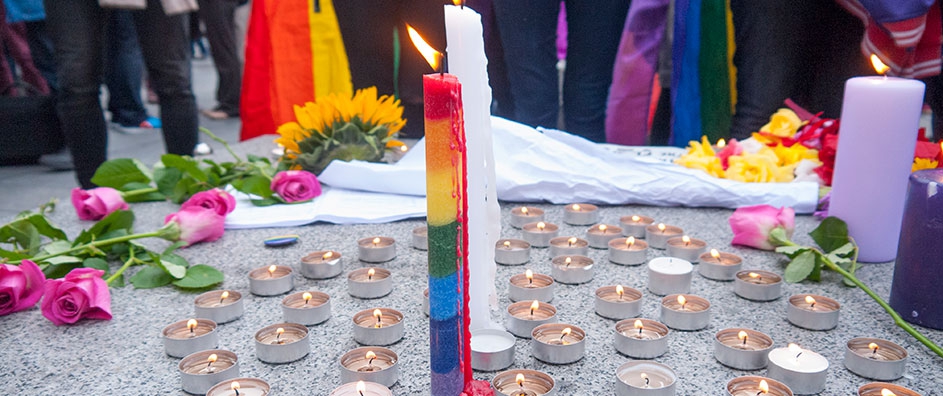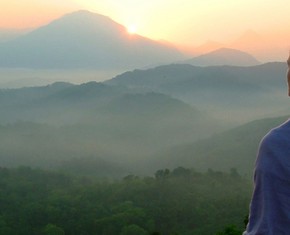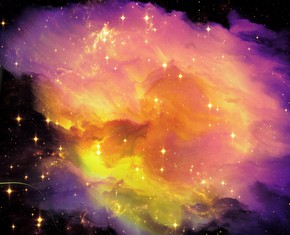The views expressed in our content reflect individual perspectives and do not represent the authoritative views of the Baha'i Faith.
Baha’u’llah taught that an equal standard of human rights must be recognized and adopted. In the estimation of God all men are equal; there is no distinction or preferment for any soul in the dominion of His justice and equity. – Abdu’l-Baha, The Promulgation of Universal Peace, p. 181.
Last night I attended a rally and candlelight vigil in my little town in Northern California to memorialize the LGBT victims of the Orlando massacre.
I went to mourn for the young lives so tragically lost and the injuries so grievously suffered; to process my own woe at the horrible misuse of religion, which terrorists typically justify their irreligious actions with; and to come to the defense of a minority community that has suffered severe persecution and deprivation of its human rights for centuries. I went because the FBI says LGBT people are the group most often targeted in hate crimes in the United States. I went because I believe in the oneness of humanity.
I also went because the Universal House of Justice, the democratically-elected global leadership body of the Baha’i Faith, said this in a statement in 2010:
Baha’is are enjoined to eliminate from their lives all forms of prejudice and to manifest respect towards all. Therefore, to regard those with a homosexual orientation with prejudice or disdain would be against the spirit of the Faith. Furthermore, a Baha’i is exhorted to be “an upholder and defender of the victim of oppression,” and it would be entirely appropriate for a believer to come to the defense of those whose fundamental rights are being denied or violated.
While I stood there at the crowded vigil, rainbow flags flying in the breeze, smelling the smoke from a few hundred burning candles, and listening to a gay high school student recite the names of the dead, my mind suddenly took me back to Lakeview Elementary School in the town I grew up in—Moses Lake, Washington.
In the 1950s that little farming community on the high plains of central Washington State displayed all of the typical, common prejudices of the time. Two African-American families lived there, and the town barely tolerated them. We had one Hispanic family in Moses Lake, and most people thought of them as “dirty Mexicans.” Everyone knew the one Japanese farmer as “the Jap.” Women stayed at home and cooked, unless they were nurses or teachers—there was no other acceptable profession for females. Men were men—macho, violent and crude—and any departure whatsoever from the standard male role was seen as deviant or worse. The adults in Moses Lake, with few exceptions, had all of the everyday American bigotries and hatreds, and their children usually inherited them.
Ironic, isn’t it? Moses Lake, a town named after a prophet of God, rife with bigotry and hatred.
 Standing there at the vigil, I clearly pictured a boy in my fifth grade class named Stanley, even though I hadn’t thought about him in decades. Stanley was different. He had an effeminate manner and a thin, girlish build. He spoke with a pronounced lisp. He moved in a delicate way and didn’t like to play sports or roughhouse on the playground like the other boys. Only girls befriended him. The older boys called him a “fag,” but in my fifth grade innocence I had no idea what that derogatory word meant.
Standing there at the vigil, I clearly pictured a boy in my fifth grade class named Stanley, even though I hadn’t thought about him in decades. Stanley was different. He had an effeminate manner and a thin, girlish build. He spoke with a pronounced lisp. He moved in a delicate way and didn’t like to play sports or roughhouse on the playground like the other boys. Only girls befriended him. The older boys called him a “fag,” but in my fifth grade innocence I had no idea what that derogatory word meant.
One day, after school, a big group of boys decided to “get that sissy” Stanley, to “teach him a lesson.” Standing there and watching the vigilante group form, I had a powerful desire to be a part of it. I didn’t want to hurt anyone—I just wanted, like most kids my age, to be accepted and normal and conventional, to be a member of the group. So, despite my own inner horror, I ran after Stanley with that group of howling, yelling boys. Like a scene out of William Golding’s terrifying novel The Lord of the Flies, our mob of maybe twenty boys pursued Stanley and tried to hunt him down. We ran after him, a pack of vicious little animals, attempting to cull the herd of one non-conformist. I cringe in shame as I write this now, but then I told myself we were just having fun, chasing someone different to enforce the same rules we all obeyed.
Luckily for Stanley, he was fast. He outran us all. About halfway through the chase, though, I stopped running. I couldn’t help it—I felt deeply debased inside when I saw Stanley look back with abject fear in his eyes. Somehow I knew, right then and there, that I never wanted to cause that kind of fear and terror in another person again. I didn’t want to be part of that group anymore. I didn’t want to hate. I realized, as I thought about it, that the moment represented a turning point in my young life. The next day at school, I found Stanley and told him I was sorry.
At the vigil for the Orlando victims, I stood there and meditated on that incident. I wondered why people do what I so shamefully participated in then—try to drive anyone or anything different away. Why do we reject, demonize, repudiate and destroy those who don’t look or act or believe like we do? Why do our prejudices, mostly inherited from our families and our cultures, determine our actions so predictably?
It seems to me, when I think about the Orlando massacre and the horrible hatred it represents, that our hardest task involves ridding ourselves of those old ingrained prejudices—but that’s exactly what the Baha’i teachings call upon us to do:
For this reason must all human beings powerfully sustain one another and seek for everlasting life; and for this reason must the lovers of God in this contingent world become the mercies and the blessings sent forth by that clement King of the seen and unseen realms. Let them purify their sight and behold all humankind as leaves and blossoms and fruits of the tree of being. Let them at all times concern themselves with doing a kindly thing for one of their fellows, offering to someone love, consideration, thoughtful help. Let them see no one as their enemy, or as wishing them ill, but think of all humankind as their friends; regarding the alien as an intimate, the stranger as a companion, staying free of prejudice, drawing no lines. – Abdu’l-Baha, Selections from the Writings of Abdu’l-Baha, pp. 1-2.
You May Also Like
Comments

















"This is mercy unalloyed and purest bounty; it is light for the world and all its peoples; it is ...harmony and fellowship, and love and solidarity; indeed it is compassion and unity, and the end of foreignness; it is the being at one, in complete dignity and freedom, with all on earth."
I am happy that you wrote this article and helped us to reflect on this issue.
Here is the link to the translation in Portuguese:
http://povodebaha.blogspot.pt/2016/06/apos-orlando-defender-os-direitos.html
I'm not familiar with Washington or California as I haven't been to any state west of the Missippi River yet. I have either flown to, rode to, or rode through various states in the Midwest and South. So places like Moses Lake, Washington, Nevada City, and Califronia aren't places I know well. I have read about bigger cities in those states as I read about big cities all over the country of states I never visited, but more smaller cities aren't things I read ...about as much.
How do people find out if there are rallies and/or vigils in their area? I usually stay online as my source of news, so I know national news way more than local news.
I'm also sorry you had such a traumatic experience in childhood to deal with. I hope it hasn't left any scars on you or Stanley (emotional or psychological as nothing physical happened beyond a chase).